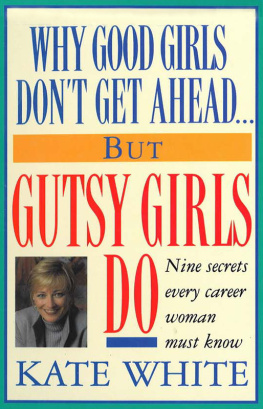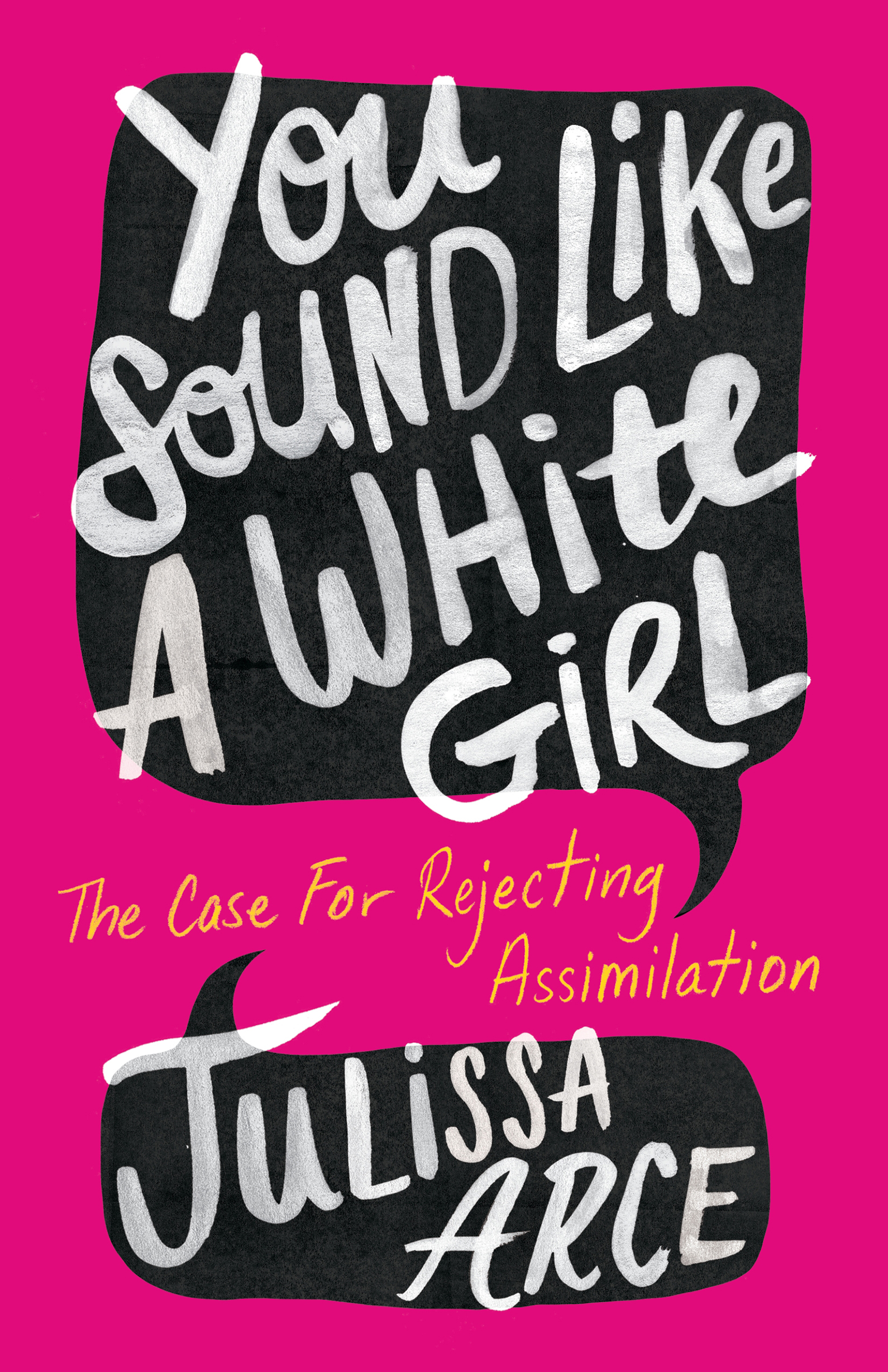Contents
Guide
Pagebreaks of the print version

The author and publisher have provided this e-book to you for your personal use only. You may not make this e-book publicly available in any way. Copyright infringement is against the law. If you believe the copy of this e-book you are reading infringes on the authors copyright, please notify the publisher at: us.macmillanusa.com/piracy.
For the people of El Paso, Texas.
For all the Mexicanos who never left.
For the ones that just returned.
For paisanos everywhere.
I coveted whiteness once, but I knew in the back of my mind that conning myself into assimilation would only ever make me a poor imitation of what I would never be.
Reni Eddo-Lodge, Why Im No Longer Talking to White People About Race
A runner ties her shoelaces and is ready for the race. Shes prepared to run the 400-metre dash. As the starting pistol goes off, shes informed that her race is now the 400-metre hurdle. Shes stunned but determined. She clears the first hurdle, barelyshe has not trained for this race. It slows her down, but she resumes her stride. She struggles to clear the second hurdle. By the time she gets to the next hurdle, shes starting to get the hang of this race she never knew shed be running. There is a hint of a smile on her face because shes finally catching up. Suddenly, the ground is slick with water beneath her feet. She looks around, but it is only in her lane. How is that possible? She has no time to ponder such mysteries, for the next hurdle is here. She clears it. Gravel is thrown in her lane, and she loses her footing. But she is strong and agile, and with one foot in front of the other she clears the remaining six hurdles. As shes about to run through the finish-line ribbon, shes told that her race isnt over. She must complete another lap around the track, and when shes done, she can claim her spot on the podium. Shes exhausted, but she must finish, so off she goes to run her final lap. She finishes in record time. Along the way people cheer and tell her what an amazing job she is doing. As she puts her arms up in celebration, shes once again informed that her race continues. Frustrated and out of breath, she goes around the track once more. She wants desperately to be off the track and on the podium. By the tenth time shes gone around the track, she begins to wonder if someone like her is meant to finish the race. None of the runners who now have medals around their neck look like her. She presses on. After years of running around and around, buying new kicks, getting new coaches, inching closer, she falls chasing a finish line that she was never going to reach. She picks herself up, looks at her bloody knees and hands, and wonders what the hell she is doing.
Finally one day she stops running, walks off the track, and goes in search of something better. Something more truthful. Something closer to freedom.
When I was a junior in high school, a boy I had a crush on told me I sounded like a white girl. I had spent so much time practicing how I enunciated words so no one could tell English was my second language that I took it as a compliment, though he had not meant it as one.
I was still undocumented in high school, so sounding like a white girl gave me a false sense of security. Having an accent said I was from someplace else; sounding like a white girl fooled me into thinking I could belong in the United States. If I sounded like I was from here, who would question whether I should actually be here?
I am a Brown, formerly undocumented immigrant from Mexico. Assimilation has been forced upon me since the moment I set foot in San Antonio, Texas, in 1994. For a long time, I didnt understand that assimilating to American culture really meant imitating white Americathat sounding like a white girl was a racist idea meant to tame me, change me, and make me small. I ran the race, completing each stage, but I never quite fit in. No one told me I was entering into a system that never wanted me to begin with.
My parents ate American exceptionalism like it was holy communion on Sunday. They were the first people to fall for the lie. They told me everything was possible in America as long as I worked hard and stayed out of trouble. This idea proved too simplistic, too naive. When I became undocumented at the age of fourteen, after my tourist visa expired, doors began to close. I thought with my smarts, with my English, with my money, I could blend in and slip through the cracks unnoticed. Once I was in, Id integrate, Id latch on, Id become a part of the United States. Id belong.
I learned the language, at the expense of my Spanish, only to find that in English I didnt exist. I read the American history textbooks in school that erased any trace of the deep Mexican roots in this country. Still, I forged ahead. I received a college education, graduated with honors, and landed a prestigious job, only to find that it wasnt enough. I needed a piece of paper with a nine-digit Social Security number, something that eluded me.
When you are someone like me, you cant get to the top without bending the rules because the rules are meant to keep you at the bottom. So with fake papers I managed my way to one of the most coveted jobs on Wall Street. At Goldman Sachs I made enough money to be considered upper middle class. I paid taxes, gave back to my community. But despite my superficial success, plenty of people wanted me to go back to where I came from.
I thought, When I get my papers, my parents formula will work, and everything will be possible, everything will be okay, everything will be beautiful. I got my green card in 2009. The process nearly cut me in half: the anxiety of each application, every fingerprint, the fact that my entire life depended on an immigration officials mood. My body expressed all the things I didnt have the words to scream. I had unexplainable headaches, searing back pain, and a stomach too weak to belong to a Mexican. I was the oldest twenty-six-year-old in the world.
Two years later, in 2011, I left my corporate job at Goldman Sachs. To my mom, my decision felt reckless, like throwing away the fishing pole that had kept us fed and jumping into the open water. She viewed the security of my paycheck as more than money. Instead, it was a reward for everything we had endured as a family, most of all the pain of being separated from our loved ones in Mexico and eventually from each other.
I had made it. I had the career, the money, y papeles. Ya lo tena todo. Hadnt I reached the finish line of a long race I had been running since the moment I immigrated to the United States? Why walk away after everything I had been through, when I had survived it all and finally had what we immigrated for: a better life, a 401(k), and papers? But how many scars had I collected along the way, many still unhealed, still stinging? My decision was necessary, urgent even. I was a fish needing to get back in the water.
I told my mom how walking away from the security of a paycheck was actually the biggest flex of all. I joked, Mira ahora me pagan para criticar al pas. Who would have imagined: we thought we had to be perfect, and now I make a living pushing this country to do better by us.
In August of 2014, twenty years after I arrived, I became an American citizen. By then the process had exhausted methe legal dance, for sure, but what had truly gutted me was the undertaking of assimilation. I was asked to do the impossible: to shed my heritage and become white. I wouldnt get to remain who I was, like the snake who sheds its skin to grow and heal after an injury but remains a snake. I had to become someone else, thinking one day the race would be over and Id finally be able to wear America proudly around my neck. Americanizing was supposed to help me fit in, but even after I learned English, became a citizen, got my coins, I still wasnt welcomed. In fact the opposite was true. To still be Mexican, I had to speak Spanish, a language that escaped my tongue the more time I spent here. Many Mexicans told me I wasnt Mexican enough, though I was born in Mexico and spent the first eleven years of my life there. I was caught in the middle, rejected by my own people while the American identity still dangled out of my reach. I had to put myself back together and almost didnt survive the transformation. I became a Frankenstein collecting the pieces Id lost along the waymy language, my culture, my family.








